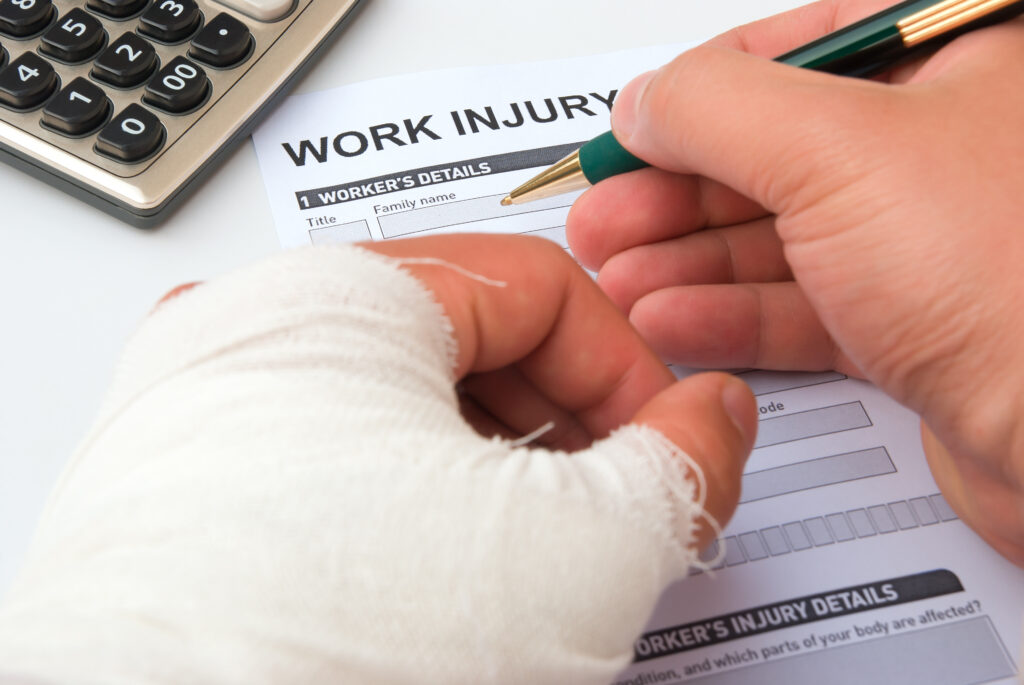Serious work injuries and accidents happen every day in Pennsylvania. Injured workers often want to know what their legal rights are and more importantly, how they can keep up financially when they’re unable to work.
In fact, here are two of the most common questions after a work accident or injury in PA:
- Can I sue my employer for an injury on the job?
- Can I sue my employer for negligence?
Suing a Pennsylvania Employer for an Injury at Work
Direct Lawsuits Against a Pennsylvania Employer for a Work Accident
Under Pennsylvania law, workers are usually not allowed to bring lawsuits against employers for work injuries or accidents. This is due to the Pennsylvania Workers’ Compensation Act. This law basically protects employers from lawsuits for negligence that results in work injuries, but only if the employer provided workers’ compensation benefits to its employees. This acts like a trade-off: if an employer provides workers’ comp benefits, and an employee gets injured while on the job, the employee’s only claim against the employer is a workers’ comp claim.
However, there are some limited exceptions, like if the employer engaged in willful misconduct or fraud. Get more info about lawsuits against employers in PA, visit our Pennsylvania & New Jersey Employer Liability Work Injury Law page.
The legal rule protecting employers from lawsuits for work accidents only applies to employers. Even though employers are usually protected from liability or lawsuits, other parties are not. Contractors, subcontractors and property owners may be held liable for a work injury. In a nutshell, an employee can file a lawsuit against a non-employer party for an injury that happens while at work. These claims are referred to as, third party liability claims. A third party (non-employer) may be held liable for negligence that leads to a work accident.
These types of work injury lawsuits often allow injured workers to obtain financial compensation for medical bills, lost wages and pain and suffering. Financial loss claims often include past and future claims. For example, a Pennsylvania resident who is seriously injured in a work accident may be able to file a claim for all medical bills that he has previously paid AND any medical treatment that he is reasonably likely to incur later on. Additional doctors’ visits, surgeries, physical therapy, injections, etc., may all be necessary in the future due to a severe injury. In a work injury lawsuit, the injured plaintiff can make a claim for these future expenses. Similarly, when it comes to pain and suffering, a claim may be made for future pain and suffering (in addition to past pain and suffering).
Time is often of the essence in work injury cases. Speak to our Pennsylvania work injury lawyers now, call our firm at (215) 399-9255.
What Are Indirect Claims For Workers’ Compensation?
95% of employers in Pennsylvania have workers’ compensation insurance or are self-insured for workers’ compensation. Injured workers can file workers’ compensation claims against an employer. The claim is essentially against the employer, but it is indirect in the sense that the workers’ compensation insurance company stands in place of the employer and handles the claim. These types of claims are handled much like auto insurance or disability insurance. A claims adjuster will oversee the claim and all payments made on the claim.
In the event the employer fails to secure workers’ compensation insurance or coverage, an injured worker can file a lawsuit directly against the employer
Under Pennsylvania workers’ compensation law, injured workers are entitled to make claims for medical treatment and wage loss (indemnity). Pain and suffering claims are not allowed, although they are allowed in non-employer lawsuits, as indicated above.
Pennsylvania Work Injury Law Firm – Over $150 Million Recovered for Injured Workers
Our Pennsylvania lawyers handle work injury cases involving construction accidents, machinery accidents and work related fall accidents. Our firm has offices throughout Pennsylvania and New Jersey. Call for a free consultation. (215) 399-9255.
DISCLAIMER: This website does not create any attorney-client relationship or provide legal advice. It is crucial to speak to a qualified lawyer prior to making any decision about your case. Read full disclaimer at the bottom of this page.

